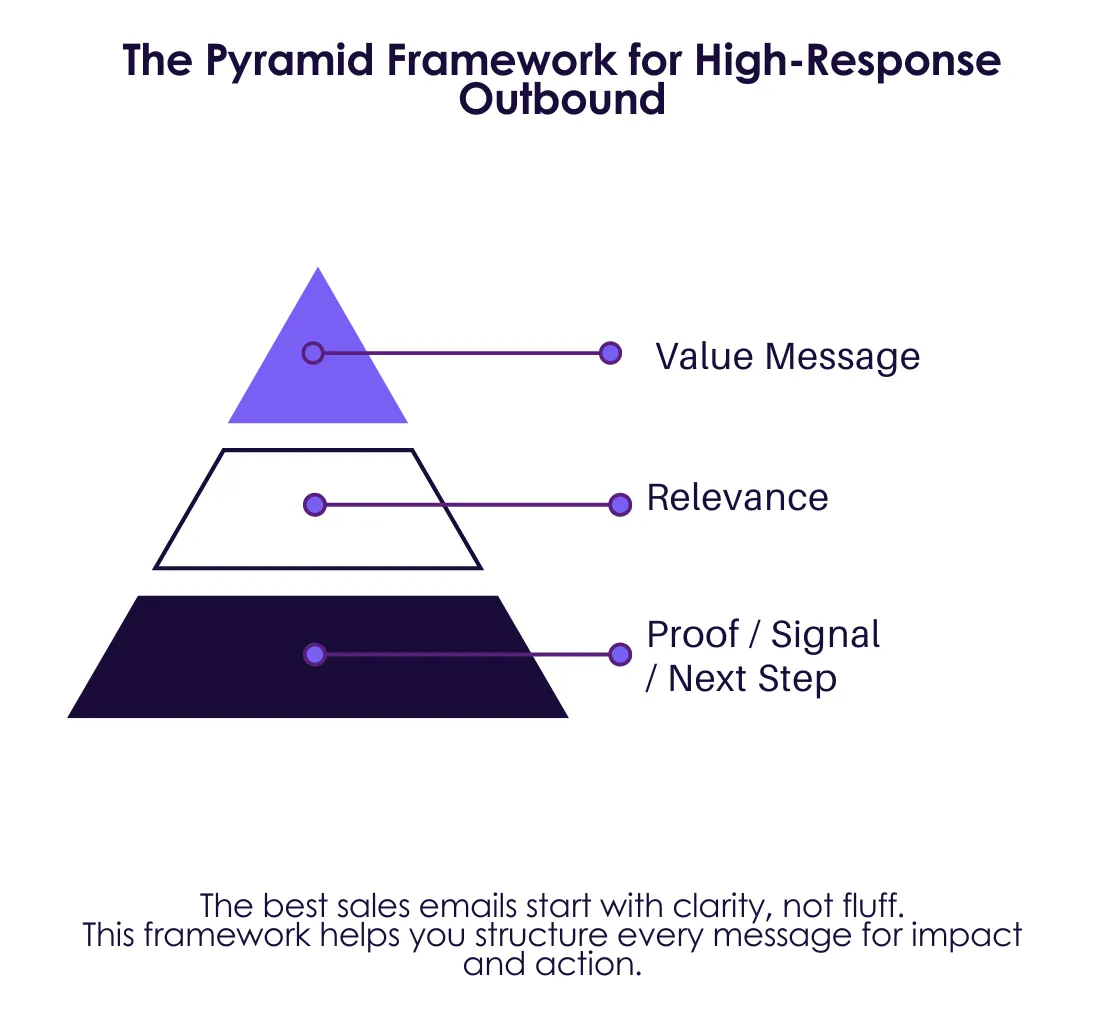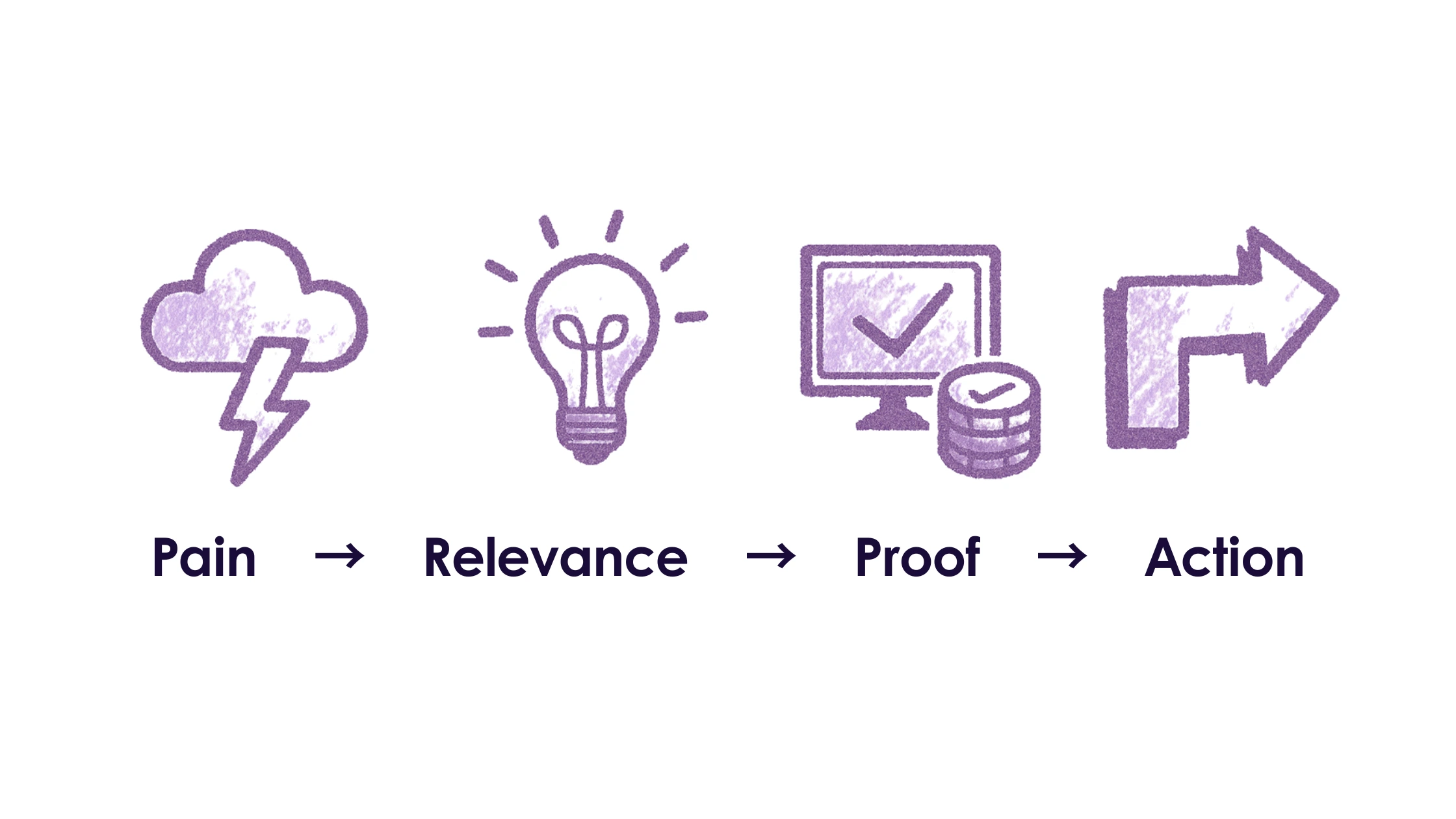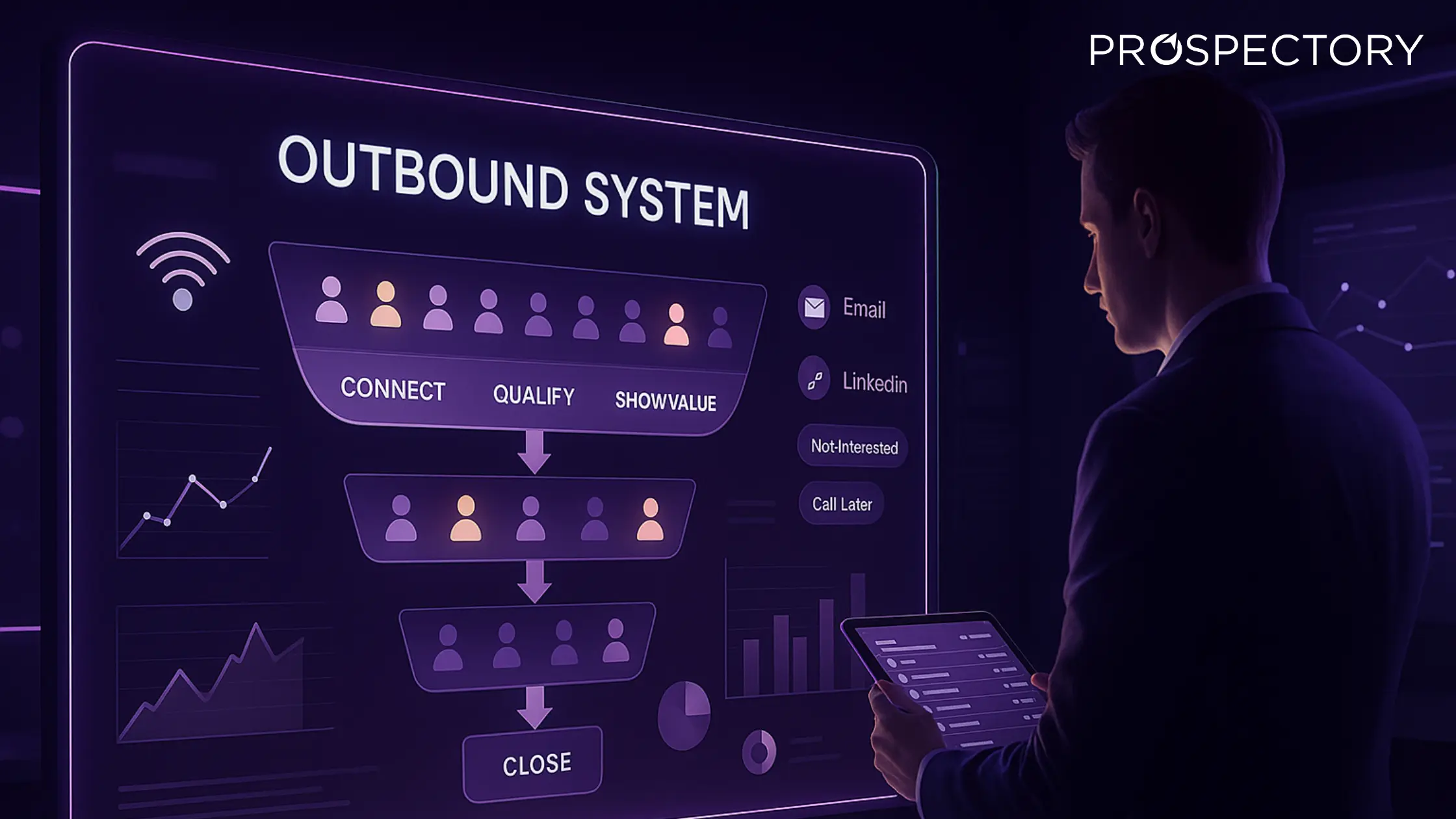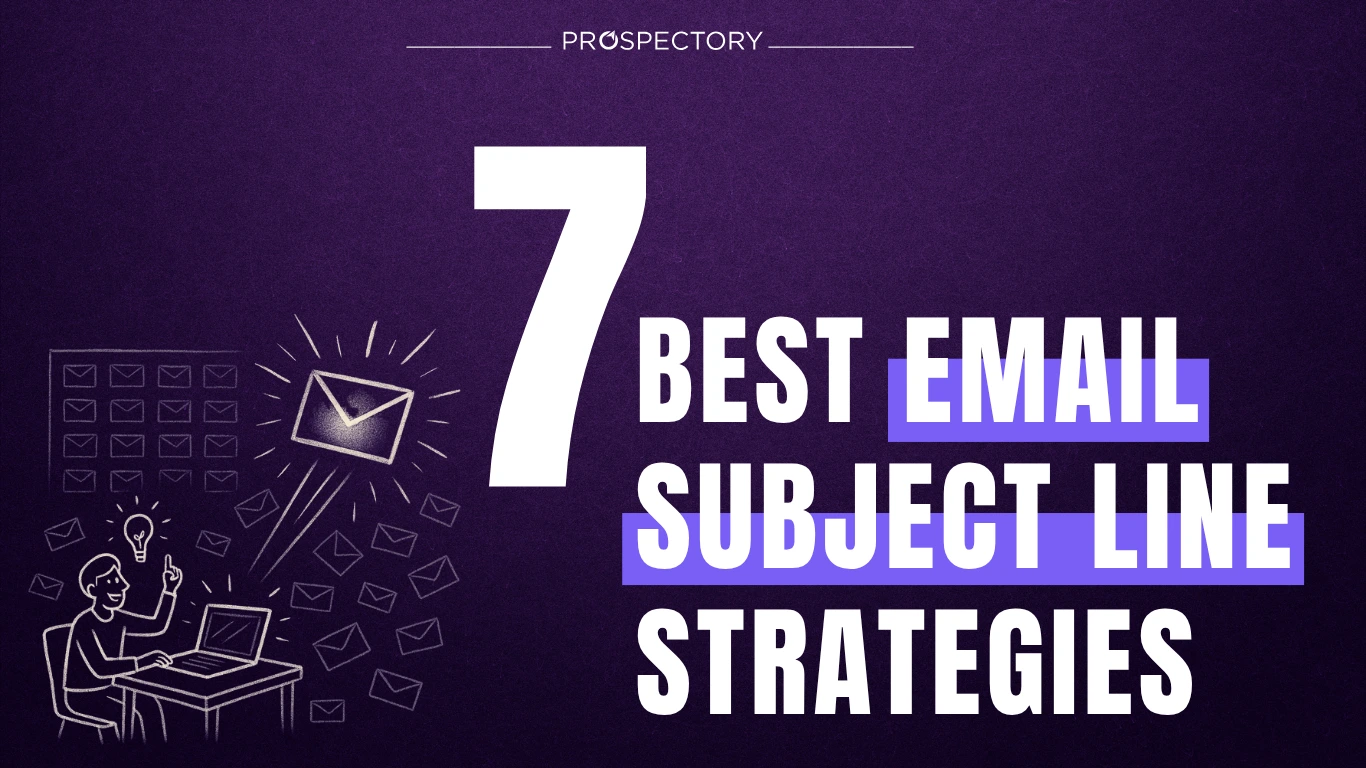How to Write Sales Emails That Get Replies: A Proven Framework for Outbound Success

Most outbound messages never get a second glance - find out how to break out of this.
Did you know that around 356 billion emails a day were sent in 2025 on average? It's no small feat to stand out these days.
Email campaigns fail not because the offer lacks value, but because the opening line fails to spark interest or the subject line stops them cold. Or worse, it did, and the reader still bailed before the call to action.
If you’re tired of sending emails into the void, here’s a simple, effective way to structure them: the Pyramid Framework. It’s built for real results, fast replies, more booked meetings, and fewer ghosted threads. Let’s break it down.
The Pyramid Framework for Writing Sales Emails That Convert
Forget fluff. The best emails lead with clarity. The Pyramid Framework is a 3-step structure that prioritizes value, relevance, and a clear next step.

Start with the Outcome
Lead with what matters most to the recipient: what they’ll get. Not what your tool does, but what it does for them.
Example:
"SaaS teams using our approach speed up response cycles by nearly half."
This is your attention-grabber. It's short, punchy, and focused on results. No long intros. No product pitch.
Back It Up with Context
Once you’ve delivered the hook, connect it to their world. Use one or two short lines to show relevance.
Example:
"Saw your team scaling outbound, guessing volume’s up, but replies aren’t."
This part is about signal over spam. Show them you understand the why behind your message.
End with Proof or Action
Wrap with a light-proof point (stat, name-drop, or quick example) and one clear CTA.
Example:
"Open to a brief 10-minute walkthrough to see if it’s relevant?"
Not pushy. Just clear.
Anatomy of a Sales Email (with Real Examples)
Let’s break it down further, subject to CTA, using the Pyramid structure.
Subject Line: Curiosity + Relevance
Make them want to open it.
Avoid:
- "Quick question"
- "Just checking in"
Try:
- "Reducing no-shows for your demo team"
- "Cut reply time by 40%, here’s how"
Short, direct, and relevant wins.
Opening Line: Show You Get Their World
Your first line needs to prove this isn’t a copy-paste blast.
Example:
"Saw your team doubling down on outbound. Guessing reply rates is a priority."
You're not scraping LinkedIn, you're showing insight.
Body: Make It About Them
Every line should earn the next. Center the reader.
- What’s in it for them?
- Why now?
- Why you?
Keep it under 100 words. If it takes more than a screen to read, you’ve lost them.
CTA: Always Have One
No soft closes. End with a single, direct ask.
Good:
- "Open to a quick demo next week?"
- "Worth a look to see if this fits?"
Avoid:
- "Let me know if interested."
- "Thoughts?"
Think of It Like a Mini Story
You know the drill: you hit send, then wait... and hear nothing. If you’re in outbound, this is all too familiar. That’s why it helps to think of every message not as a pitch, but as a mini story structured to lead your reader somewhere meaningful:
Every sales email is a story:

Pain → Relevance → Proof → Action
This format moves fast. It helps your reader see themselves in the problem, see you as the fix, and know what to do next.
Pro Tips for Better Sales Emails
Brevity Wins
One screen. One purpose. One ask.
You’re not telling your whole story; you’re opening a door. Save the deep dive for the call.
Logical Flow
Every sentence should tee up the next. If a line doesn’t support the core message, cut it.
Be Human
Speak like a person. Use contractions. Drop the jargon.
Instead of:
"We streamline complex processes to accelerate your revenue ops."
Try:
"We cut follow-up delays and help your team close faster."
Common Mistakes That Kill Replies
Too much fluff:
No one reads past the fold.
No clear outcome:
What’s in it for me?
No ask:
They don’t know what to do next.
Over-personalization:
Don’t try to impress, aim to connect.
Swipe This: Sales Email Template
Here’s what this looks like in the wild:
Subject: Fixing low reply rates for your AE team
Hi [First Name],
Saw your team scaling outbound. Guessing volume’s up, but replies aren’t.
B2B teams using our platform shorten their follow-up lag and drive more first responses, all powered by AI-crafted personalization.
Worth a quick 10-minute chat to see if it fits?
— [Your Name]
Final Takeaway: Clarity, Not Flattery, Wins
The best sales emails are short, sharp, and focused. Use the Pyramid Framework to:
Hook with a value-driven opener
Connect with relevant context
Close with proof and a single CTA
The result? More replies. Fewer chases. And a better shot at starting real conversations.
Want more like this? Try building these emails in Prospectory AI, where outbound meets intelligence.

Related Blogs








